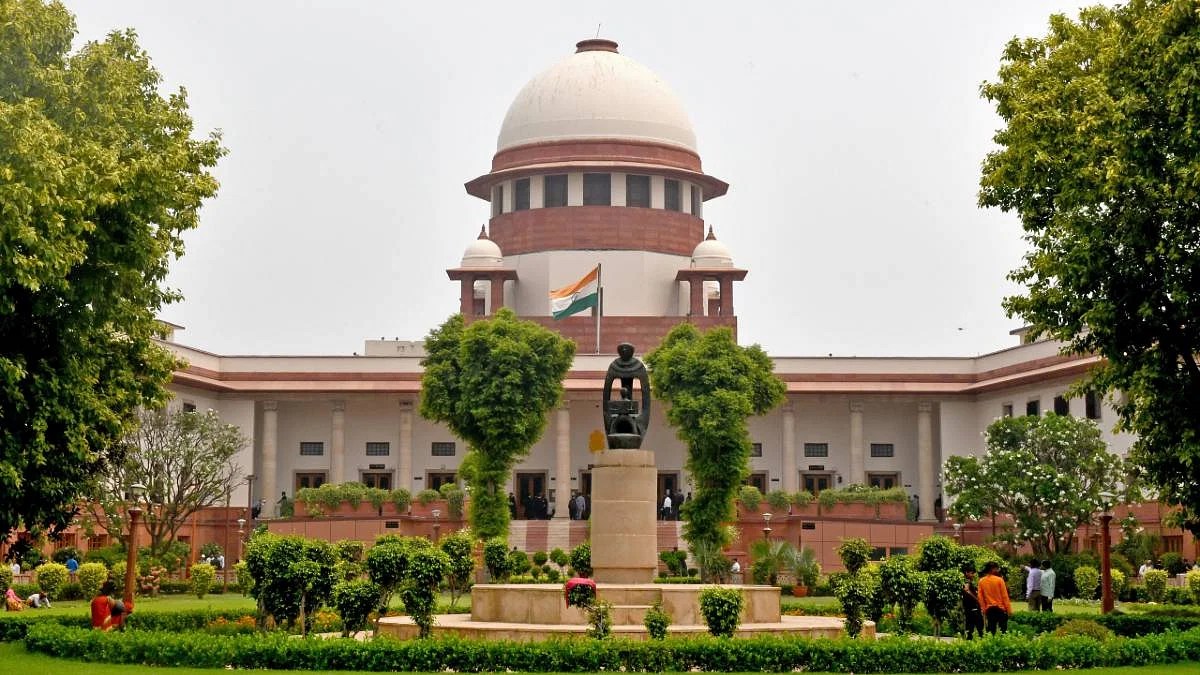Can ECI demand oath from Rahul Gandhi?
New Delhi: Following Congress chief Rahul Gandhi’s allegations of “vote chori” (vote theft) Thursday, Chief Electoral Officers (CEOs) of no less than three states—Karnataka, Maharashtra and Haryana—have requested for a proper oath from Gandhi on his claims.
Gandhi alleged at a press convention that the Election Fee of India (ECI) was colluding with the Bharatiya Janata Occasion (BJP) to “steal” elections. He particularly pointed to the Mahadevapura seat in Karnataka, alleging duplicate voters, invalid addresses and bulk voters led to a “vote chori” of greater than 1 lakh votes.
The CEOs of the three states have requested Gandhi to signal an oath beneath Rule 20(3)(b) of the Registration of Electors Guidelines, 1960, together with the names of such electors, “in order that crucial proceedings will be initiated”.
The ECI additionally ‘fact-checked’ Gandhi’s claims on social media platform, X, calling the statements “deceptive”.
“If Shri Rahul Gandhi believes what he’s saying is true, then he ought to signal the Declaration/Oath as per Rule 20(3)(b) of the Registration of Electors Guidelines 1960 and submit the identical to CEO of Haryana by in the present day itself to that crucial proceedings will be initiated,” the ECI’s response mentioned.
Can the ECI ask for such an oath from Gandhi? What are the repercussions of a false oath, and what’s the treatment obtainable to an individual making such allegations? ThePrint explains.
Additionally Learn: ‘Jaitley was despatched to threaten me, LS ballot was rigged’: Rahul’s speech at Congress conclave raises storm
What does the regulation say
Rule 20 of the 1960 Guidelines, which the ECI has quoted, offers with inquiries into claims and objections. It says that the registration officer shall maintain a abstract inquiry into each declare and objection acquired by him, and the officer could require that proof tendered by any particular person be given on oath.
Nonetheless, former Secretary Normal of Lok Sabha and constitutional knowledgeable P.D.T. Achary mentioned that Rule 20 doesn’t apply in Gandhi’s case.
He identified that Rule 20 follows the principles laid down for the process to be adopted proper after the publication of draft rolls by the Election Fee. As soon as draft rolls are revealed, claims for inclusion of a reputation within the roll and each objection to an entry will be lodged inside 30 days, in keeping with Rule 12 of the 1960 Guidelines. Rule 20 then outlines how officers ought to conduct an inquiry into such claims and objections.
“That rule is relevant solely to the publication of the draft roll. As soon as a draft is revealed, they’ll settle for requests for inclusion and deletion. After which the electoral registration officer can ask the objector to offer an oath and file an affidavit,” he explains.
“So they’re quoting the improper rule as a result of on this case, the electoral roll turned remaining and the election was held. Subsequently, EC officers can’t ask Rahul Gandhi to offer an affidavit,” Achary instructed ThePrint.
The letter issued by the CEOs to Gandhi additionally factors out that so far as the conduct of elections is anxious, election outcomes can solely be questioned by an election petition earlier than the excessive court docket. Nonetheless, Gandhi hasn’t taken that route.
What’s the treatment
If an individual has sure claims and objections to an electoral roll after publication of the ultimate rolls or after the elections, is that particular person left with no treatment? Achary says, no.
He factors out that the treatment is “inherent” in Article 324 of the Structure, which duties the ECI with the superintendence, route and management of the preparation of the electoral rolls for, and the conduct of, all elections to Parliament, state legislatures and the workplaces of President and Vice-President.
“When ECI has the duty to organize electoral rolls, ECI additionally has an obligation to look into the complaints which have been made about any critical infirmities within the rolls,” Achary asserts.
Referring to Gandhi’s allegations, Achary instructed ThePrint, “The allegations have been made by the Chief of Opposition within the Lok Sabha. He’s not an odd citizen. Naturally, if he has made these allegations, he has carried out so with a way of duty. It’s the duty of the ECI to look into it and guarantee the Indian public that the rolls have been ready correctly and in accordance with the regulation.”
The repercussions of ‘vote chori’
In case Gandhi takes an oath on his allegations, what are the repercussions if the allegations are discovered to be false?
The oath template given to Gandhi requires him to declare : “I’m conscious that making a false declaration in reference to electoral rolls is punishable beneath Part 31 of the RP Act, 1950. I additionally perceive that giving false proof is punishable beneath Sections 227 of the Bharatiya Nyaya Sanhita, 2023.”
Part 31 of the Illustration of the Individuals Act 1950 talks about “false declarations” and the punishment for giving a false declaration.
It supplies for a one-year jail time period, tremendous or each, for an individual who makes a written assertion “which is fake and which he both is aware of or believes to be false or doesn’t consider to be true” in reference to the preparation, revision or correction of an electoral roll, or the inclusion or exclusion of any entry.
Part 227 of the Bharatiya Nyaya Sanhita (BNS) defines “giving false proof” as making a false assertion when an individual is legally certain by an oath to state the reality, or certain by regulation to make a declaration.
Part 229 of BNS says that anyone who provides false proof will be punished with a jail time period of as much as three years, together with a tremendous of as much as Rs 5,000.
(Edited by Sugita Katyal)
Additionally Learn: Amid Rahul’s ‘match fixing’ cost, ECI to arrange webcasting in 100% polling stations
Source link
latest video
latest pick
news via inbox
Nulla turp dis cursus. Integer liberos euismod pretium faucibua





















